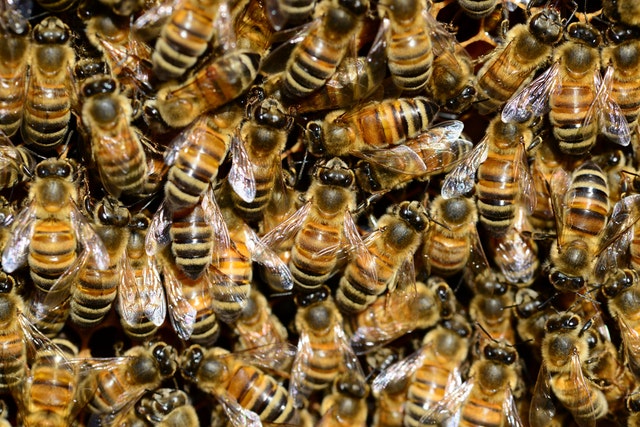Why Are Honey Bees Dying?
by Shawn Olson, Professional Beekeeper
There are Scientists who study insects called entomologists in the field studying why honeybees are dying worldwide. In Canada this year has been a huge collapse of colonies and we need to find out the reasons why or we are going to lose fruits and vegetables that we love and they will be gone forever more.
1. Colony Collapse
This refers to the trend of decline in bees. It is a term used to cover many causes however it is typically overnight loss of a hive or you will go to check the hive and they are just gone with no sign of them remaining. It is very disheartening on the beekeepers who are trying everything to keep them alive. We work extremely hard at doing so. This colony collapse disorder has been noticed since 2009 since it is apparent without our intervention it is not going to go away, Colony collapse however is not the only reason behind mass hives dying.
2. Parasites
Weakened hives leaves the honeybee susceptible to both bacterial & viral diseases. One of the worst culprits is the Varroa mite destructor. They are similar to ticks in mammals where they attach themselves to the bees even before they hatch as baby bees and they both weaken the honeybees and introduce diseases to them such as deformed wing virus. When a hive is already weakened the varroa mite infestation can literally wipe a hive out. Other parasites involved are the hive beetle and Nosema a micro gut parasite in adult bees.
3. Diseases
Honeybees have weakened immune systems which leaves them susceptible to diseases. One such disease is the American Foul Brood and the other is deformed wing virus. American foul brood affects larvae less than a day old preventing them from surviving it is spread when a bee tries to clean the cell and thus it is spread throughout the hive and is very contagious. When a beekeeper sees signs of American foul brood there are strict regulations they have to adhere to to stop the spread. They must burn the hive all frames sometimes the box can be saved but it has to be torched properly in order to be able to be used. Most beekeepers will burn the box as well to be sure. The deformed wing virus is transmitted from the varroa mites and prevents the bees from being able to fly.
4. Poor Nutrition
Some farming practices are making it hard for bees to forage and are not getting a well balanced diet. One practice called monoculture farming. This is when a farm only has one crop and limits the bees diet to only one type of pollen for extended periods of time. This makes the bees more susceptible to chemical pesticides, parasites, bacteria as their immune system is not strong.
5. Pesticides Are Causing A Fast Decline In Bee Populations.
One of the pesticides called “neonicotinoids”. They are effective after one application and affect only invertebrates meaning they are less susceptible to run off and less dangerous to birds, humans and livestock. It wasn’t supposed to affect bees in theory however they have found trace amounts in pollen grain which bees bring back to the hive to feed their young. It has been found that trace elements in one pollen grain shouldn’t be an issue but the chemical accumulates to critical levels in the beeswax. The pesticide interfere with bee communication as well. It has been shown to interfere with foraging behavior and there larva development. Basically pesticides lower bees immune system even further weakening the hive and leaving it open to parasites & bacterial disease. It’s a disastrous cycle.
Some wonder if the cell phone towers or 5 G network is affecting the bees electromagnetic field to navigate. In 2010 there was a study to see if cell phones were affecting the bees but so far there is no evidence but I haven’t heard of a proper study about 5 G yet. There was a very small sampling in India where cell phones were attached to 4 hives it was shown that the bees built up lower stocks of food and orientated themselves less but this sampling is too small to say that this is what caused that. More studies need to be done to find the root cause of bee decline.
A Bee Hive in the wild does not survive without intervention from the beekeepers.
Right now beekeepers work on lowering the threats facing them and without beekeepers the bees would have died off already. A hive in the wild do not survive without intervention from the beekeepers. Get involved become a beekeeper or support your beekeepers anyway you can it is so important to our agriculture and our world.
Get involved! Become a beekeeper! Donate!


